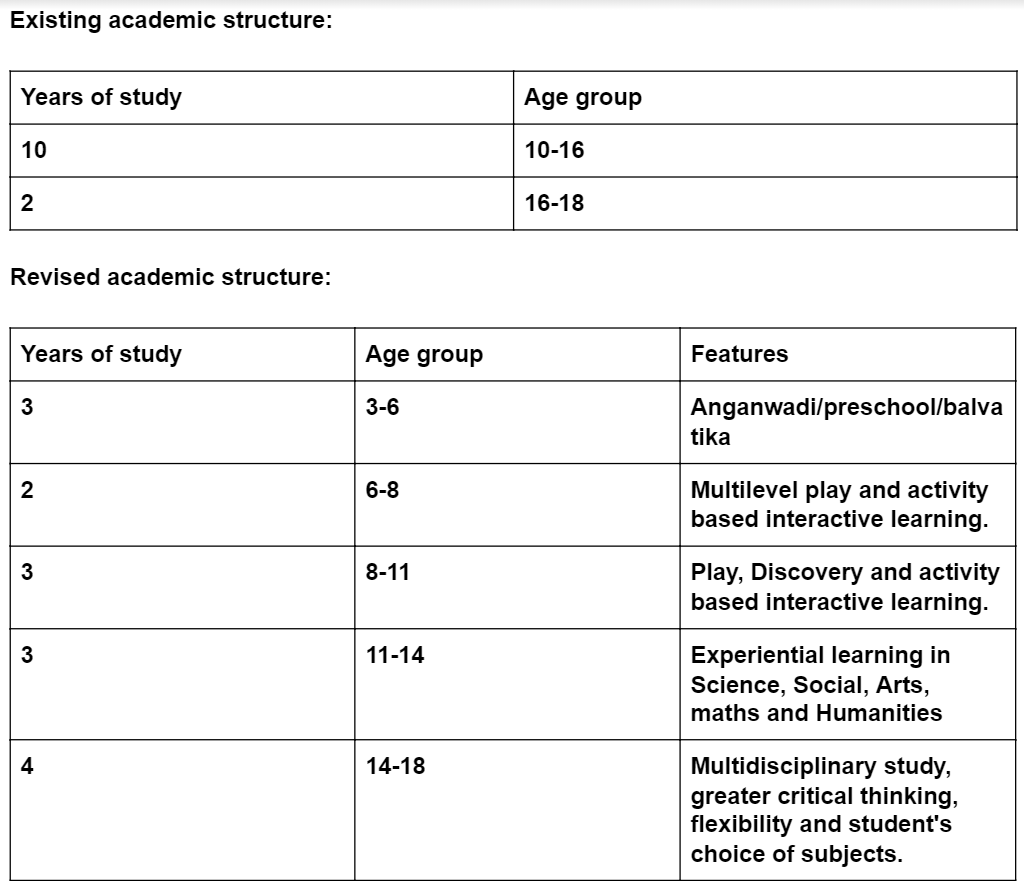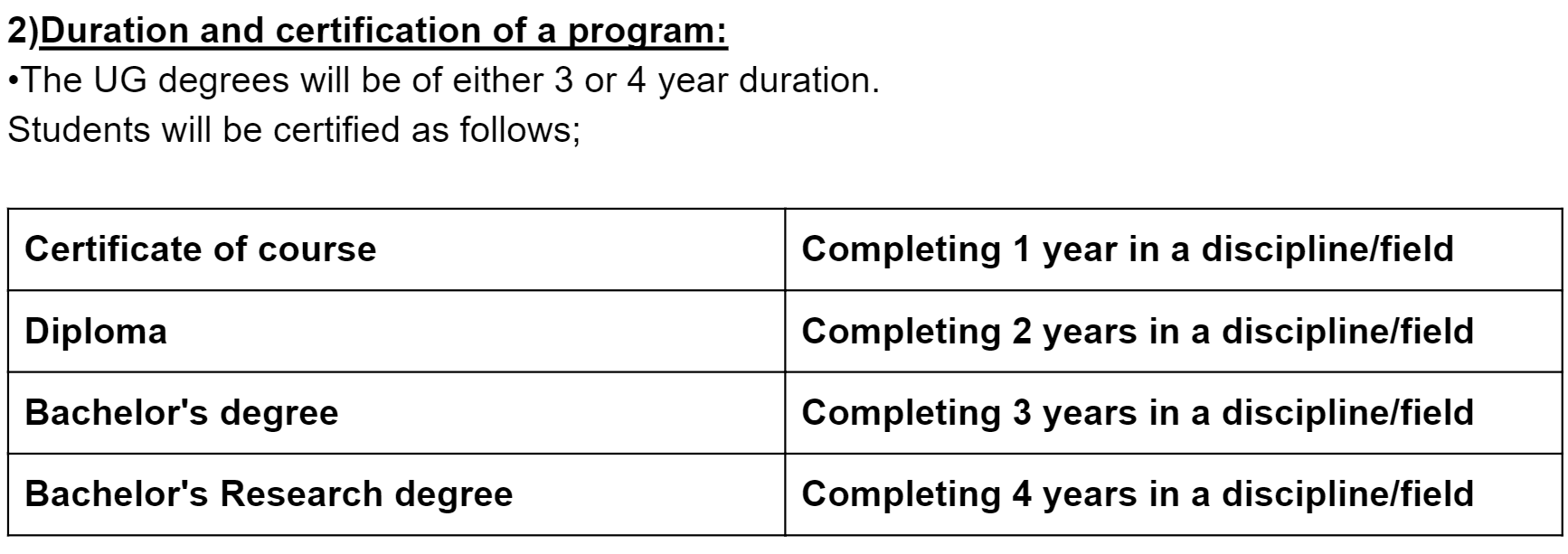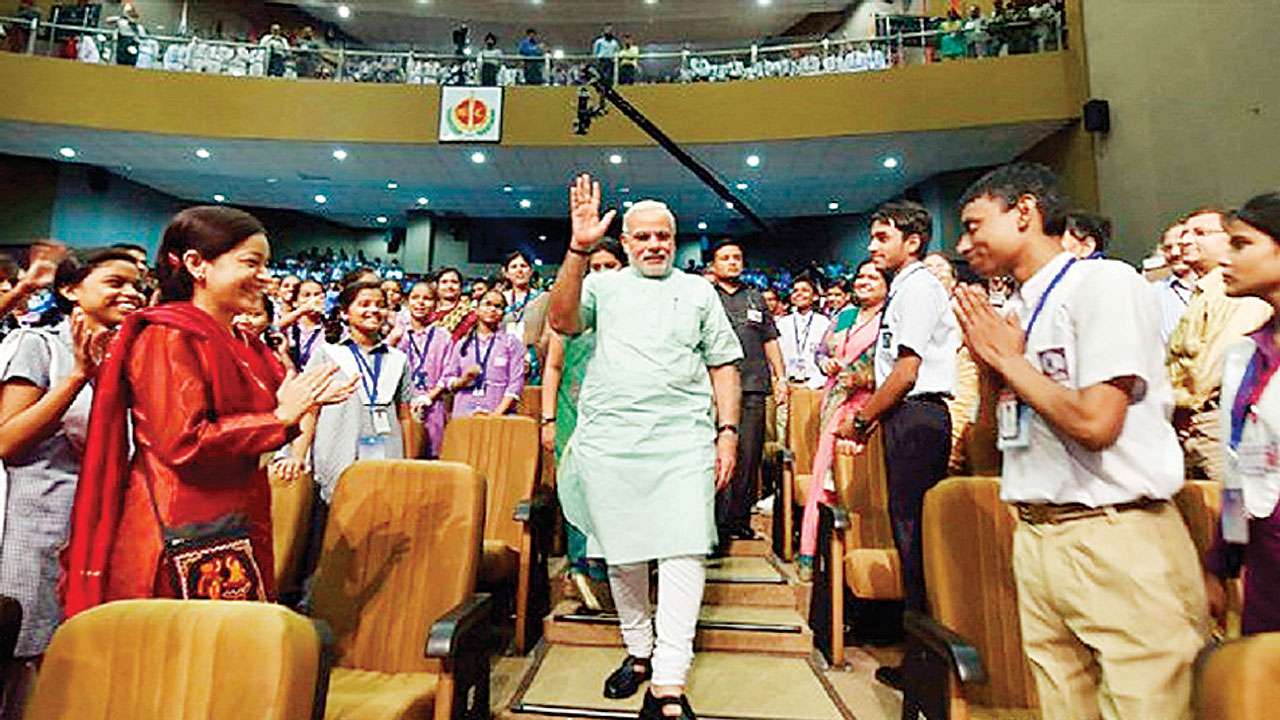For the longest time we have spent criticising the educational system/educational policy of India, longing for it to reach the level of global standards of educational system. Now after 34 years of wait; Union Cabinet has approved the new National Education Policy-2020 on 29th July which aims to reinforce the education system in India from grassroot level. This education policy targets to reform both primary and higher education in India which inturn can bring revolutionary changes in India, if implemented right !
No longer you will be divided into 3 streams of Arts, Science and Commerce!. After class 10th , a student can choose what he/she actually likes! It can even be Biology with Politica lScience!!
So what are the key proposals of this policy? What is the time period required for implementation? What are some major challenges for its implementation? How far will the students be benefitted from this new system? Let’s analyze all key points of this policy in depth. But before that let’s roll back and take a glance at the history of our previous educational policies and their drawbacks which inturn resulted in new Education policy.
History:
- In 1961, NCERT was formed by the Union government, which was chosen as an autonomous organization to advise both state and centre on formulating and implementing education policies.
- First National Policy on Education came up in 1968 under Indira Gandhi government.This education policy made sure that all children upto the age of 14 will attain compulsory education.Rajiv Gandhi government
- Second education policy came up in 1986, under Rajiv Gandhi government which majorly focused on “equalising educational opportunities” within all communities; which was further modified by PV Narasimha Rao government in 1992.
NEP-2020 is not a sudden move; BJP election manifesto in 2014 mentioned about formulating new National Education policy.Back in 2015, then HRD Minister Smriti Irani formed a committee with the following main objectives;
- Improving the quality of education.
- Credibility of education.
- Addressing gaps in implementation.
- This committee submitted its report on 7th May 2016 under the chairmanship of TSR Subramanian. The draft policy was released in October 2016, but was not taken forward.
- Under the chairmanship of former ISRO chief, Dr.K.Kasturirangan , new committee was formed with 9 members, which came up with the draft National Education policy-2019 .This draft finally got approved in our Union Cabinet on 29th July as new NEP-2020 which is 3rd Education policy in country!.
Major highlights of National Education Policy-2020:
With the vision of “Making India, a global knowledge superpower” ; the policy aims to give equal weightage for Academic, Vocational and extracurricular talents of a student; this aiding students to be prepared for the real world while having fun learning!.
i)As a first step, the Ministry of Human Resource Development will be renamed as the Ministry of Education .
ii) The Government of India has decided to increase the GDP investment in education from approx 2.6% to at least 6%, thus giving more priority to education.
iii)The Gross Enrollment Ratio will be increasing from current 26.3% to 50% by 2035.
Some major changes which will be implemented in both primary and higher education is as follows;
SCHOOL EDUCATION:
1) Structure of education system:
- The Current 10+2 structure of school education will be modified as a 5+3+3+4 system covering the age group 3-18, divided as 3-8, 8-11, 11-14, 14-18.


2)Multi Streams:
Students will have flexible options to choose subjects across the streams.
3)Bag-less days:
- In a year, school students of grade 6-8 will be having 10 Bag-less days , where in they will be exposed to hands-on vocational crafts like gardening, metal work, electrical work, etc.,
- Internship opportunities will be made available to students from grade 6-12, which will also include holiday periods.
4)Multilingual education:
At Least till 5th grade local language/mother tongue will be made as medium of instruction, which will be followed by both private and public schools.
This is a holistic approach which will contribute to overall development and increased enrollment of kids in school.
- Sanskrit and other classical languages will be made optional from early level in schools.
- Foreign languages will be made as an option after 9th grade.
5)Coding will be taught from 6th grade:
- As a part of digital literacy in the 21st century, coding and computational thinking will be taught from grade 6th onwards.
- National Educational Technology forum will be created in order to exchange ideas on use of technology to enhance learning and assessment.
6)New National Assessment Centre, PARAKH:
Performance Assessment, Review and analysis of Knowledge for Holistic Development [PARAKH] will set up new standard guidelines for Student assessment and evaluation.
- Thus, report cards will include self assessment by students, assessment by their classmates along with the teacher’s evaluation sheet; making it a 360° holistic progress card.
- This self assessment program will enhance the critical thinking of an individual.
7)Easier board exams:
- Board exams for grade 10 and 12 will be reformed to eliminate the mug-up system.
- Exams will be redesigned to test the primary core capacity and competencies “rather than months of coaching and memorization”.
COLLEGE/HIGHER EDUCATION:
1)Multiple Entry – Exit program:
- This will remove our current rigid boundaries of education, and more freedom will be given to a student.
- For instance, if a student loses interest in between after joining a degree program; he/she can join a different degree without wasting an year, simply by transferring Credits from the previous degree program.

3) MA and M.Sc will be made for 1 year if a student pursues a UG degree for 4 years.
4)M.Phil courses will be abolished.
5)MERU: Multi disciplinary Education and Research Universities [MERU] will be set up inorder to achieve global education standards. All UG, PG and PhD courses will be made interdisciplinary, with flexible subjects and vocational courses.
6)HECI: Higher Education Commission of India[HECI] will be set up as a sole body for entire higher education except for Legal and Medical Educations.
7) Academic Bank of Credits [ABC]:
With this credit system, students can take a break from a course for a year and rejoin to continue from where they left initially without losing any points/scores.
8) Common Entrance Exams:
NTA will conduct common entrance exams[CEE] for admissions to Universities all over the country; which will be held twice an year.
9) No affiliation:
Within the period of next 15 years, colleges will be either grades autonomous to offer degrees or will be constituent colleges of a University.The affiliation of colleges will be phased out.
CHANGES FOR TEACHERS:
- Inorder to increase standard of education, the qualification of teachers must be increased as well.
- New and Comprehensive National Curriculum Framework for Teacher Education [NCFTE] will be framed by 2021, from NCTE in consultation with NCERT , which will formulate the required factors to be qualified as a teacher.
- By 2030, a four years integrated BA degree would be the minimum qualification required to become a teacher.
- New teachers training board will be set up for all teachers in the country.
IMPLEMENTATION:.
- It is being aimed that by 2025, 50% of the learners in schools and higher education Institutes will be exposed to vocational learning.
- Universalisation from age 3 to age 16 is said to be implemented by 2030.
- It is said that the entire policy will be in operational mode by the decade 2030-2040.
If you ever felt jealous or wanted to go back to school after checking out these perks in the new National Education Policy you are not the only one! The prescribed structure will lead to overall development of the child.
This shift of education to practicality was much needed! On paper, the policy is almost perfect with negligible flaws; but only time can tell that to what extent these policies would be implemented. If it gets implemented as expected in a right way then no one can stop India from being an educational hub in the world!
